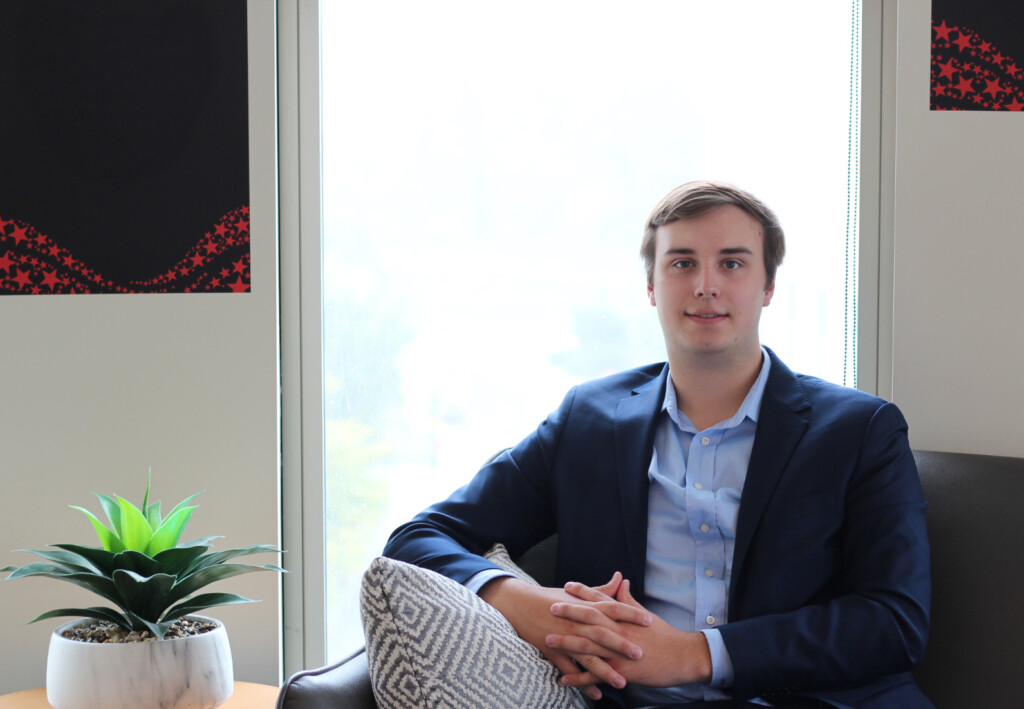From Feasibility to Implementation
By: Nathan Janke, Bachelor of Commerce, Honours: Finance, Minor: Economics
Bachelor of Economics, Honours: Financial Economics, Economic Theory
This summer, I had the privilege of participating in the Sprott Summer Undergraduate Research Experience as a research intern under the mentorship of Professor Mohamed Al Guindy. This opportunity allowed me to build technical skills, strengthen my analytical abilities, and gain experience developing and implementing large-scale data collection for academic research. It has been central to my growth as a student and reinforced my interest in research at the intersection of technology and financial markets.

Our work contributes to a broader project aimed at understanding the digital interconnectedness of publicly traded firms. In today’s economy, companies exist within a wide network of online platforms, where digital engagement can both reflect and influence financial markets. At the start of the summer, my goal was to identify which social media platforms could provide viable, large-scale datasets for studying these connections and to establish a foundation for future stages of the research.
The first stage of my internship involved conducting a feasibility assessment of eleven social media and content platforms. For each, I examined factors critical to large-scale data collection, including API access requirements, extraction limits, pricing models, and terms of service restrictions. I also considered the implications of recent lawsuits and policy changes that have reduced the accessibility of public data. This stage required both technical understanding and the ability to evaluate the legal and operational aspects of using these platforms for research.
Once the feasibility analysis was complete, I moved on to the proof-of-concept phase. This involved writing scripts to test data extraction processes. My primary focus became Seeking Alpha, where I developed scripts to access information on a predetermined list of companies, collecting analyst recommendations, company profiles, engagement data, and comment threads. These extractions demonstrated the feasibility of accessing the data and its value for broader research.
In the final phase of my internship, the focus shifted toward YouTube and Wikipedia as high-potential platforms for large-scale data extraction. I compiled a dataset covering every company listed on the New York Stock Exchange (NYSE), NYSE American, and NASDAQ. For each firm, I collected links to their Wikipedia pages, YouTube channels, and unique channel IDs. This dataset will support future analysis of corporate engagement and information dissemination across two major digital platforms.
The process was not without challenges. Many platforms have imposed tighter restrictions on data access in response to privacy concerns and past misuse of APIs, creating barriers for researchers. Navigating these limitations required balancing technical problem-solving, compliance, and adaptability. Overcoming these obstacles was a valuable learning experience that taught me to think critically about the trade-offs between accessibility, ethics, and research value.
Through this internship, I strengthened my technical skills in API data extraction and automation, while also developing analytical abilities in comparing platforms, identifying promising options, and adapting methods to long-term research goals. These combined skills will be invaluable as I continue my academic journey and pursue future opportunities.
Although the summer portion of the project has concluded, the work will continue to evolve. The feasibility assessments I conducted provide a guide for selecting platforms in future studies, and the data collected through my proof-of-concept scripts establishes a solid foundation for ongoing exploration of digital connections among publicly traded companies. I look forward to seeing how this research progresses and contributes to our understanding of the role online networks play in shaping corporate reputation, visibility, and market dynamics.
I am sincerely grateful to Professor Al Guindy for his mentorship, guidance, and support throughout this experience. His expertise and encouragement were instrumental in helping me navigate both the technical and conceptual aspects of the project. I also appreciate the Sprott School of Business for providing this incredible opportunity to immerse myself in hands-on research. This internship has not only expanded my capabilities but has also strengthened my passion for research.